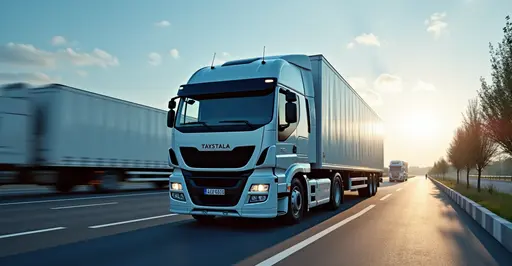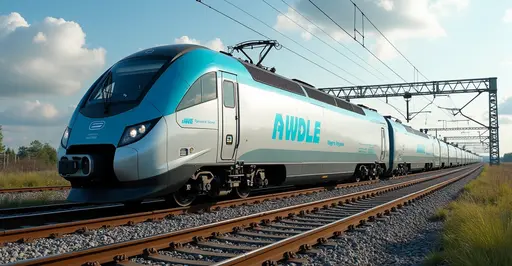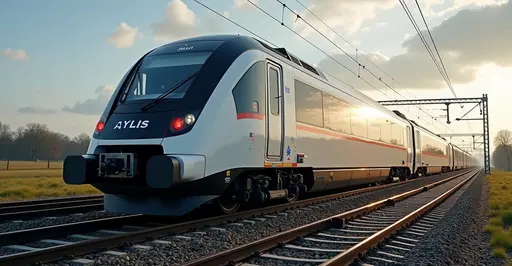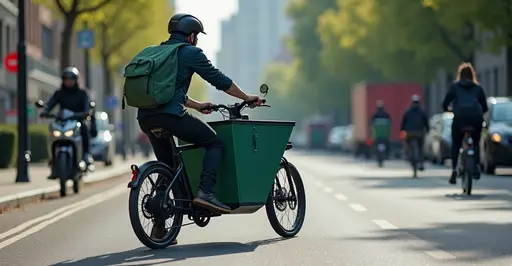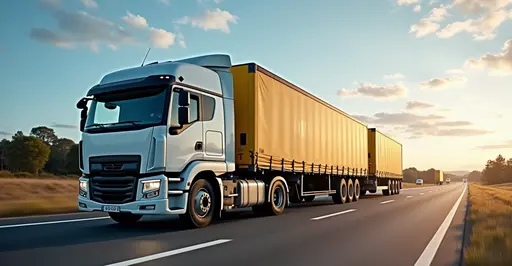
Major Logistics Companies Begin Electric Heavy Vehicle Testing
Australia's freight transport sector is taking a significant leap toward decarbonization as major logistics companies launch pilot programs for electric heavy-duty trucks. Leading carriers including Linfox and Toll Holdings have secured substantial government funding to test zero-emission transport solutions across the country.
Government Backing for Green Transport
The Australian Renewable Energy Agency (ARENA) has committed $100 million Australian dollars to the 'Driving the Nation Program,' with a specific focus on "Trucks, Charging and Innovation." This initiative represents a major step in Australia's efforts to reduce carbon emissions from the transport sector, which accounts for approximately one-fifth of the country's total CO2 emissions.
ARENA CEO Darren Miller emphasized the importance of this transition: "The heavy transport sector has an important role in reducing the environmental impact of moving goods. The heavy vehicle market has matured significantly over the past year, particularly in vehicle availability and infrastructure."
Linfox's Electric Fleet Expansion
Linfox has received $19.6 million in funding to deploy 26 battery electric trucks and charging infrastructure across three distribution centers in Queensland, South Australia, and Victoria. This investment will enable the company to test electric vehicles in various operational environments and gather valuable data on performance, charging requirements, and operational efficiency.
The company's initiative represents one of the largest electric truck deployments in Australia to date, showcasing the growing confidence in electric heavy vehicle technology for commercial applications.
Toll's Project TruckVolt Initiative
Toll Holdings has secured $9 million in funding for its 'Project TruckVolt,' which involves a total investment of $67 million. The project will see the deployment of 28 battery-electric trucks at ten customer and Toll-owned sites nationwide. The fleet will include ten Volvo FM Electric prime movers and 18 Volvo FE electric rigids.
Notably, Toll plans to integrate battery-electric vehicles into third-party logistics operations serving major customers including Coca-Cola Europacific Partners, Woolworths, Bluescope, and Origin Energy. This approach demonstrates how electric trucks can be integrated into existing supply chains without disrupting operations.
Global Electric Truck Market Context
The Australian pilot programs come at a time when the global electric truck market is experiencing rapid growth. Major manufacturers including Volvo, Daimler, and Scania have been investing heavily in electric truck development. Volvo recently celebrated delivering its 5,000th electric semi-truck globally, signaling the technology's increasing maturity and market acceptance.
Electric trucks offer significant advantages over traditional diesel vehicles, including reduced noise pollution, lower operating costs, and zero tailpipe emissions. However, challenges remain in terms of upfront costs, charging infrastructure, and range limitations for long-haul applications.
Technical Specifications and Performance
The electric trucks being deployed in Australia feature advanced battery technology with ranges suitable for urban and regional delivery operations. Modern electric heavy vehicles can achieve ranges of 125-275 miles on a single charge, though this is still less than their diesel counterparts. Charging infrastructure remains a critical component, with companies investing in depot charging solutions to support their electric fleets.
According to industry research, electric trucks can reduce lifetime greenhouse gas emissions by up to 30% compared to petroleum diesel trucks when considering the entire lifecycle, including electricity generation.
Industry Response and Future Outlook
The logistics industry has responded positively to these developments, recognizing both the environmental benefits and potential cost savings. Electric trucks typically have lower operating costs due to reduced maintenance requirements and cheaper electricity compared to diesel fuel.
As Darren Miller of ARENA noted: "By transitioning to electric vehicles, not only are these companies able to reduce their carbon footprint, but it also sets a new standard for sustainability in freight."
The success of these pilot programs could pave the way for broader adoption of electric heavy vehicles across Australia's freight transport sector, contributing to the country's emissions reduction targets and creating a more sustainable logistics industry.

 Nederlands
Nederlands
 English
English
 Français
Français
 Deutsch
Deutsch
 Español
Español
 Português
Português





